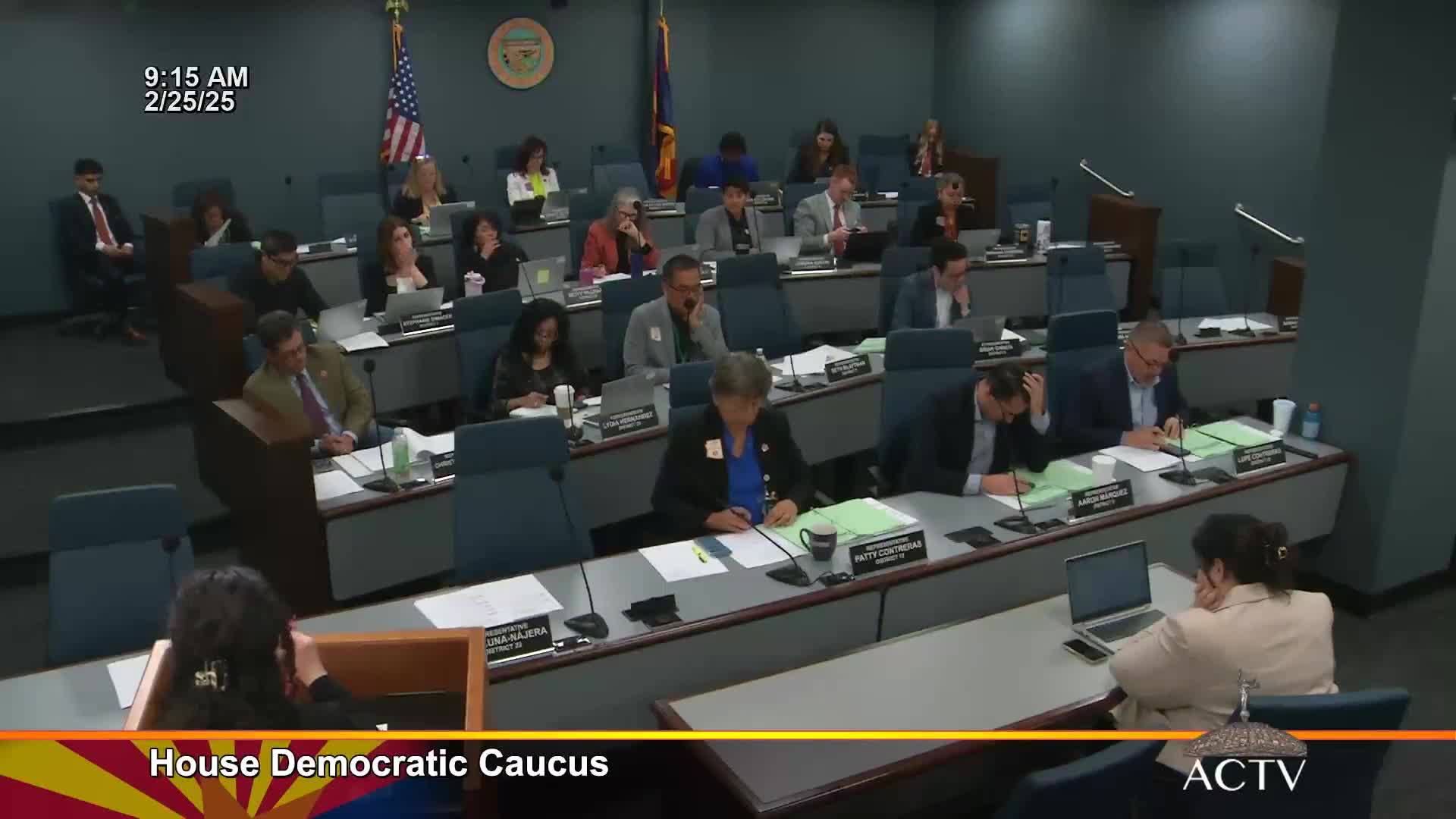Majority proposal links teacher pay increases to state land trust distribution, seeks special election for funding change
Get AI-powered insights, summaries, and transcripts
Subscribe
Summary
A strike‑everything amendment to HB 21‑85 would require districts and charters to raise base teacher pay above FY26 levels if voters approve increased annual distributions from the state land trust; a companion measure (HCR 02/1947) would send that change to voters and direct any increase above 2.5% to a statewide teacher compensation program.
Lawmakers described a two‑part plan in floor remarks that would tie a proposed statewide teacher compensation program to an increase in annual distributions from the Arizona State Land Trust.
Representative Gwen presented the strike‑everything amendment to HB 21‑85, saying the measure would form “one half of the majority's proposal to continue funding from Proposition 123.” The bill, as described on the floor, would require each school district and charter school to revise salary schedules to increase the base salary of eligible teachers above the FY26 base salary and prohibit those increased salaries from being reduced below the FY26 base salary amount. The bill defines an "eligible teacher" as a full‑time district or charter teacher who spends a specified percentage of work time on instruction or supporting academic achievement; it excludes administrators and teachers who scored in either of the two lowest performance classifications on their evaluations. The measure would create a teacher pay fund and set calculation, compliance and reporting requirements.
Companion measure: Christina presented the strike‑everything amendment to HCR 02/1947. That resolution would prohibit the state or any state officer from reducing the annual distribution from the state land trust below the level in effect on the measure’s effective date unless three‑quarters of the legislature votes to do so. It would also require that any increase in expendable earnings resulting from a distribution above 2.5% of the average monthly market value of the fund for the preceding five calendar years be appropriated for a statewide classroom teacher compensation program to increase base salary and salary schedules for eligible classroom teachers. The resolution, as amended, directs the secretary of state to place the measure on a special election ballot in 2025 for voter approval.
Floor remarks and concerns: A member noted the bill is not final and flagged that it "does not mention certified teachers," meaning the draft would make pay increases apply equally to uncertified instructors unless changed. Representative Grama spoke in support, saying the change would remove obstacles for Native students who live on tribal land and help ensure education access (her remarks were made in support of a separate residency transfer bill on the consent calendar). Representative Peshnikai also supported expanded access for students who travel from tribal land to neighboring districts.
Next steps: Sponsors said the HB 21‑85 draft on the floor is not final and indicated further work will be done. The HCR amendment includes an emergency and implementation timeline that would require legislative follow‑up to implement the teacher compensation program if voters approve the distribution change.
Ending: The pair of measures would move a funding decision to voters while creating a statutory framework for distributing any new money to teacher pay. Sponsors and some members signaled the bills will be refined further before final action.
